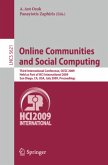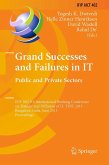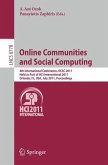When firms contribute to open source projects, they in fact invest into public goods which may be used by everyone, even by their competitors. This seemingly paradoxical behavior is explained by the model of private-collective innovation where private investors participate in collective action. Previous literature explains that companies benefit through the production process providing them with unique incentives such as learning and reputation effects. By contributing to such open source projects firms are able to build a network of external individuals and organizations, who may participate in the creation and development of the software. As will be shown in this doctoral dissertation firm-sponsored communities involve the formation of interorganizational relationships which eventually may lead to a source of sustained competitive advantage. However, managing a largely independent open source community is a challenging balancing act between exertion of control to appropriate value creation, and openness in order to gain and preserve credibility and motivate external contributions.
Bitte wählen Sie Ihr Anliegen aus.
Rechnungen
Retourenschein anfordern
Bestellstatus
Storno








